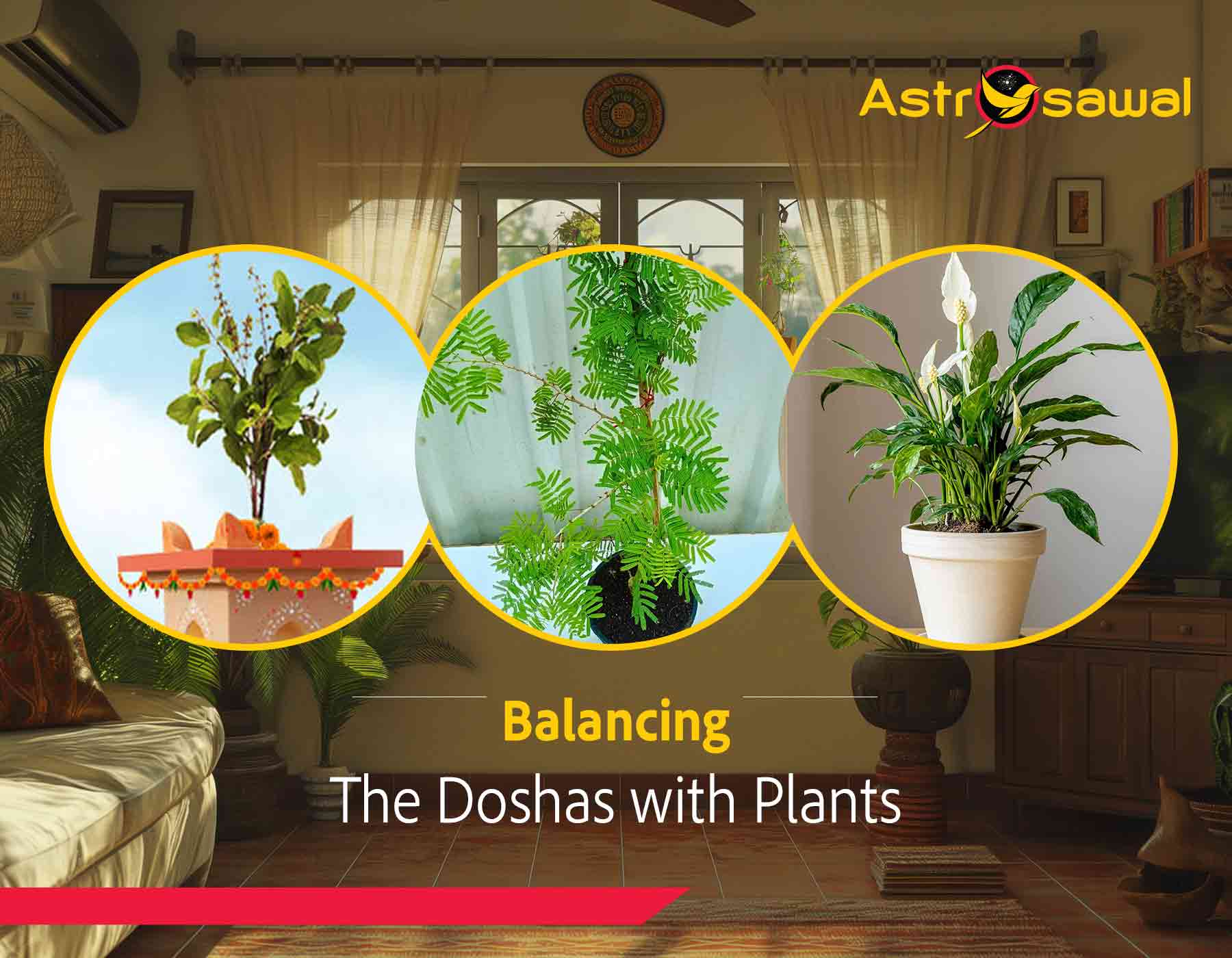Balancing the Doshas: Using Vastu Plants to Create Harmony in Your Home

In the ancient Indian system of Vastu Shastra, plants are believed to play an important role in creating a harmonious and balanced home environment. By carefully selecting and placing plants according to the principles of Vastu, you can create a space that is not only beautiful but also promotes positive energy and well-being.
The Five Elements and the Doshas
Vastu Shastra is based on the five elements: earth, water, fire, air, and space. These elements are believed to correspond to the three doshas in Ayurveda: Vata, Pitta, and Kapha. Vata is associated with air and space; Pitta is associated with fire and water; and Kapha is associated with earth and water.
An imbalance in the doshas can lead to a variety of health problems, both physical and mental. By creating a home environment that is balanced according to the doshas, you can help to promote your own health and well-being.
Using Plants to Balance the Doshas
Plants can be used to balance the doshas in a number of ways. Certain plants are believed to have specific qualities that can help to pacify or increase a particular dosha. For example, Vata-pacifying plants are typically tall and grounding, with soft, rounded leaves. Pitta-pacifying plants are often cooling and calming, with green or blue foliage. Kapha-pacifying plants are usually light and airy, with upward-growing stems and leaves.
In addition to their individual qualities, plants can also be used to balance the doshas by their placement in the home. For example, Vata-pacifying plants are best placed in the southwest or northwest corners of the home, while Pitta-pacifying plants are best placed in the southeast or northeast corners. Kapha-pacifying plants can be placed in any area of the home, but they are especially beneficial in the east or north.
Specific Plants for Each Dosha
Here are some specific examples of plants that can be used to balance each dosha acoording to vastu:
Vata-pacifying plants:
Snake Plant:
snake plant is revered for its air-purifying properties and its ability to thrive in low light conditions. Its sturdy, upright leaves symbolize resilience and strength, qualities beneficial for calming Vata imbalances.
Money Plant:
the money plant is associated with prosperity and good fortune in many cultures. Its trailing vines and heart-shaped leaves not only add a touch of greenery to indoor spaces but also help create a tranquil environment ideal for balancing Vata energies.
Aloe Vera :
Renowned for its medicinal properties, aloe vera is cherished for its soothing gel, which offers relief from skin irritations and promotes healing. This succulent plant's cooling nature aligns well with Vata dosha, providing nourishment and hydration to counterbalance dryness and instability.
Jasmine:
With its delicate white flowers and intoxicating scent, jasmine has been cherished for centuries for its calming and uplifting effects. In Ayurveda, jasmine is prized for its ability to pacify Vata and promote relaxation, making it an excellent choice for creating a serene atmosphere.
Pitta-pacifying plants:
Peace Lily:
The peace lily's elegant, white blooms and lush foliage not only enhance indoor spaces but also serve as natural air purifiers. Its cooling presence helps to mitigate Pitta imbalances by fostering a sense of calm and harmony.
Mint:
Known for its refreshing aroma and culinary uses, mint offers cooling properties that help pacify Pitta dosha. Whether grown in pots or planted in the garden, mint provides a readily available source of freshness that can be incorporated into teas, salads, or infused water to cool and soothe the body and mind.
Lavender:
Revered for its calming fragrance and therapeutic benefits, lavender is a beloved herb in aromatherapy and holistic healing practices. Its gentle, aromatic essence helps to alleviate stress and agitation, making it an excellent choice for Pitta individuals seeking to restore balance and tranquility.
Tulsi:
Tulsi holds a sacred place in Ayurveda for its medicinal properties and spiritual significance. Its aromatic leaves, when brewed into tea, offer a cooling and grounding effect that helps pacify Pitta dosha and promote mental clarity and emotional well-being.
Kapha-pacifying plants:
Spider Plant:
The spider plant is celebrated for its air-purifying qualities and resilience. Its light and airy presence helps to counterbalance the heavy and stagnant qualities of Kapha dosha, promoting a sense of lightness and vitality.
Rosemary:
Rosemary is a beloved herb in many kitchens and gardens. Its stimulating fragrance and invigorating properties make it an excellent choice for pacifying Kapha imbalances, aiding digestion, and promoting mental clarity and focus.
Basil:
Basil is revered for its ability to enliven the senses and uplift the spirit. Its warming and drying qualities help to mitigate Kapha dosha's heaviness and congestion, promoting circulation and vitality.
Asparagus Fern:
Its feathery foliage and delicate appearance add a touch of elegance to indoor spaces while its subtle energy helps to dispel stagnation and lethargy associated with Kapha imbalances.
In addition to using plants, there are a number of other things you can do to create a harmonious home environment according to the principles of Vastu Shastra. These include:
Using natural materials such as wood, stone, and cotton
Keeping the home clean and clutter-free
Creating a sense of order and balance
Allowing for plenty of natural light and ventilation
By following these tips, you can create a home that is not only beautiful and functional but also promotes your physical, mental, and emotional well-being.
Conclusion:
Plants are a powerful tool that can be used to create a harmonious and balanced home environment. By carefully selecting and placing plants according to the principles of Vastu Shastra, you can create a space that supports your health and well-being in a variety of ways. So why not give it a try? You might be surprised at the positive impact that plants can have on your home and your life.
Watch Full Video: Vastu Plants for Home


